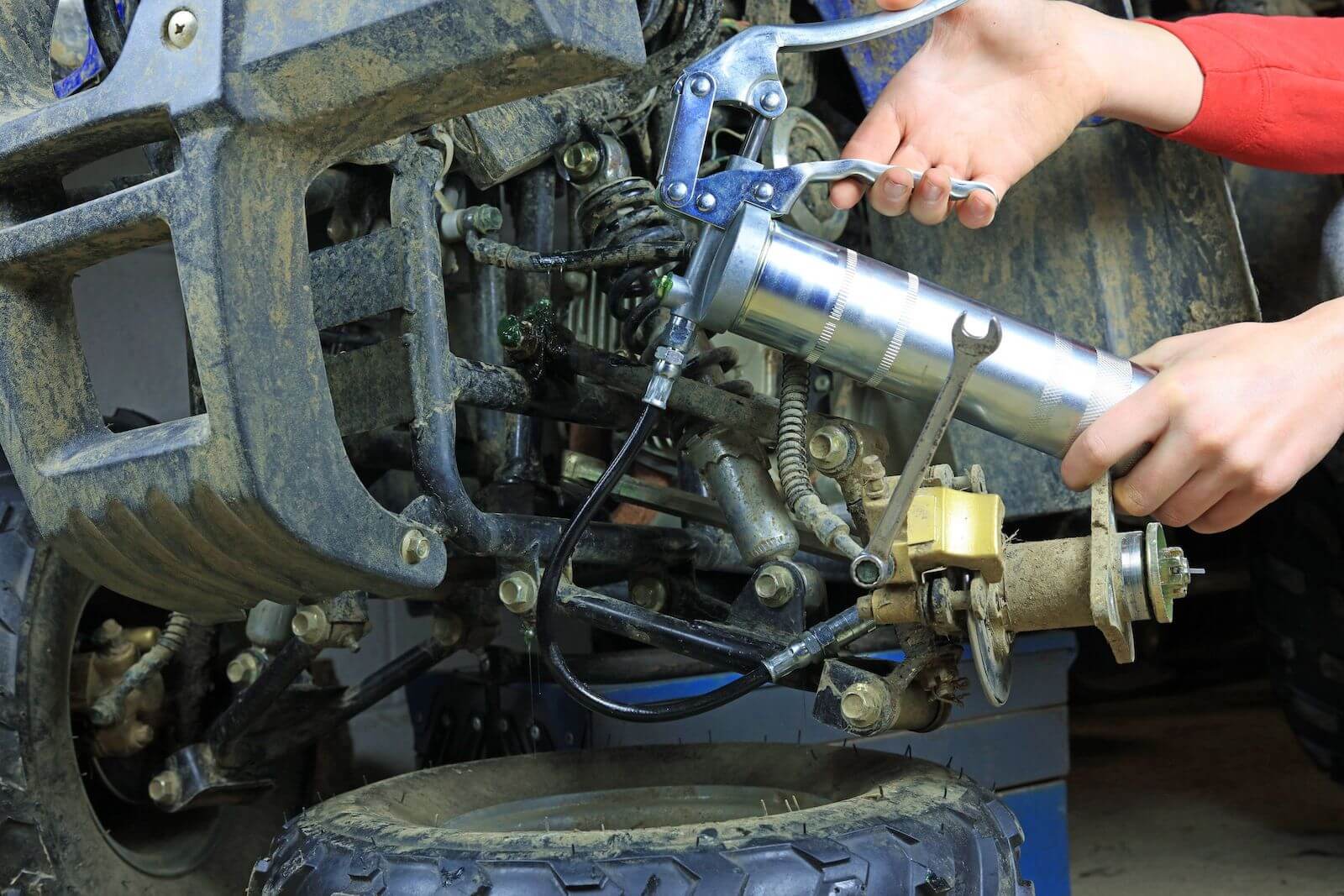Whether you’re a new car owner or an experienced driver, regular vehicle maintenance is crucial to ensure that your car continues to perform at its best. Every component of your vehicle plays a vital role in its overall functioning, and engine oil is no exception. In fact, one aspect of vehicle maintenance that many people overlook is the frequency of their oil changes.
You might be surprised to know that regular oil changes can significantly influence your car’s fuel economy, or “gas mileage”. How often you change your oil and the type of oil you use can make a noticeable difference in how much gas your vehicle uses over time, thereby impacting the overall performance and longevity of your vehicle.
So, let’s delve deeper into the world of engine oil to understand this crucial relationship between oil changes and gas mileage.
How Engine Oil Works?
Engine oil is a complex substance with multiple vital roles in your car’s internal combustion engine. Primary among them is its duty as a lubricant. Engine oil ensures that the numerous moving parts within your engine have a smooth, slick surface over which to move, reducing the damaging effects of friction.
This lubrication goes a long way towards preventing wear and tear on your engine’s components, preserving their lifespan and ensuring the engine runs smoothly.

Moreover, engine oil also plays a crucial role in managing the engine’s temperature. While the coolant system handles the bulk of the engine’s cooling needs, engine oil aids in this process by absorbing some of the heat from the engine’s components. This is essential because an overheated engine not only performs less efficiently but can lead to all manner of mechanical issues.
Last but not least, engine oil also helps to clean the engine. As oil circulates, it picks up and carries away a certain amount of the dirt and debris that can accumulate inside an engine. Without regular oil changes, this contamination can have a considerable negative effect on engine performance — including fuel efficiency.
AirTec High-Class Micro-Ceramic Oil Additive
HIGH -CLASS Micro-ceramic lubricating oil additive works with all conventional, semi- and fully synthetic engine and gear oils. It is a selected combination of the most modern high-tech solid ceramic lubricants, making it a world leader in ceramic additives.
shop nowThe Importance of Oil Viscosity
Viscosity is a measure of how much a fluid resists flow — in other words, its thickness. The viscosity of engine oil is fundamental to its performance within your engine.
Too thick, and it may not flow freely enough to reach all of the engine’s components quickly. Too thin, and it may not provide adequate lubrication, allowing parts to grind together and cause damage.
Engine oil viscosity also changes with temperature. When the engine is cold, the oil thickens, and when the engine is warm, it thins out. Since your engine needs to perform well under both conditions, this is a crucial consideration. Multi-viscosity oils, denoted by a rating like 10W-30, are designed to perform well in a variety of conditions and temperatures.

Finally, the incorrect viscosity can adversely affect fuel economy. Oil that’s too thick can increase drag on moving components, causing the engine to work harder and burn more fuel. On the other hand, oil that’s too thin may not provide enough friction reduction, leading to less efficient operation and poorer gas mileage.
How Regular Oil Changes Affect Gas Mileage
The frequency of oil changes is a key variable that can significantly affect your vehicle’s fuel efficiency.
Often, drivers tend to overlook this aspect, but maintaining regular oil changes can not only enhance your car’s gas mileage but can also extend the life of its engine. Here’s why.
1. Removing Contaminants
With time, as engine oil circulates through your car’s engine, it starts to accumulate tiny bits of dirt and debris. These contaminants, if allowed to build up, can cause increased friction and wear on the engine’s parts. This, in turn, makes your engine work harder, leading to increased fuel consumption.
By changing your engine oil regularly, you eliminate these contaminants, ensuring your engine operates as efficiently as possible. Clean oil provides smooth lubrication, reduces friction, allows for free movement of engine parts, and enhances overall engine performance.
As a result, your engine consumes less fuel, thus improving gas mileage.
Regular oil changes also help prevent sludge formation. Sludge is a thick, tar-like substance that can build up in an engine, resulting from exposure to heat and the natural deterioration of engine oil over time.
If sludge starts to accumulate, it can clog your engine’s oil passages, which further increases engine wear and decreases fuel efficiency.
Air-Tec HIGH CLASS Injector Cleaner
Air-Tec High Class Injector Cleaner cleans an engine’s fuel system, removing harmful oil, carbon, sludge, and resin build up. All Air-Tec High Class products are produced in Germany and held to the industry highest standards, ensuring our products meet and exceed your expectations.
shop now2. Ensuring Proper Viscosity
Fresh oil maintains proper viscosity, which is critical for the oil to effectively reduce friction inside your engine. As we discussed earlier, the correct viscosity ensures that oil flows smoothly and quickly, reaching every part of the engine it needs to and providing the necessary lubrication.
As engine oil ages and becomes contaminated, it can lose its viscosity properties. The thickening of old oil increases the friction between the engine components which, in turn, causes your engine to work harder and burn more fuel.
By ensuring regular oil changes, you are effectively keeping the oil at its ideal viscosity level, enabling smooth engine operation and better fuel efficiency.
3. Extending Engine Life
The benefits of regular oil changes are not limited to immediate fuel efficiency; they also play a significant role in extending the life of your engine. Engines are made up of many moving parts, and the wear and tear from friction can lead to premature engine failure.
Regular oil changes provide consistent lubrication and reduce this friction, ensuring that the engine isn’t working harder than it should be.

An engine that is consistently forced to work harder than necessary is not only less fuel-efficient but is likely to have a shorter lifespan. By maintaining regular oil changes, you are effectively prolonging your engine’s life, ensuring its continued efficient operation, and maintaining better gas mileage over the long term.
To sum up, the value of regular oil changes extends beyond just keeping your engine running smoothly. It contributes significantly to make better fuel economy, reduces potential for engine damage, and extends the overall lifespan of your engine. Incorporating regular oil changes into your vehicle maintenance habits can, therefore, provide long-term benefits for both your car’s performance and your wallet.
The Impact of Synthetic Oil on Gas Mileage
Over the years, advancements in automotive technology and research have paved the way for synthetic engine oil.
It’s important to understand the differences between synthetic and conventional oil to make an informed decision on which one is best suited for your vehicle and driving needs.
Synthetic oil has been specifically engineered to provide better protection, performance, and longevity than conventional oil. One of the key benefits of using synthetic oil is its potential impact on fuel efficiency.
Let’s delve into the reasons why synthetic oil might be a great choice for boosting your gas mileage.
Air-Tec HIGH-CLASS Automotive Oil Additive
The complex organic compounds found in HIGH-CLASS Automotive Oil Additive provide unmatched friction reduction and exceptional wear reduction and protection.
shop nowBetter Performance in Temperature Extremes
One of the most significant advantages of synthetic oil over conventional oil is its superior performance in extreme temperature conditions.
Engine oils can lose viscosity when exposed to high temperatures or become too thick in cold conditions. A change in oil viscosity can negatively impact the engine’s ability to operate efficiently and increase fuel consumption.
Synthetic oil, on the other hand, has been specifically engineered to be more resistant to viscosity breakdown, ensuring better lubrication and protection across a wide range of temperatures.
As a result, it helps your engine maintain optimal performance, even in scorching summers or freezing winters. This consistent and stable performance can substantially contribute to improving your vehicle’s gas mileage over time.
Longer Oil Change Intervals
One of the primary reasons synthetic oil is gaining popularity amongst vehicle owners is its longer lifespan compared to conventional oils. Synthetic oil is made of artificially created chemical compounds that resist breaking down over time, allowing for longer oil change intervals.

This extended lifespan does not only save you time and money on oil changes but can also benefit fuel efficiency. When engine oil ages and becomes contaminated, its lubricating properties deteriorate, leading to increased friction and reduced fuel economy.
With synthetic oil’s ability to last longer and maintain its effectiveness, your engine will consistently achieve the optimal level of lubrication, leading to less friction, better engine performance, and improved gas mileage.
It’s essential to note that using synthetic oil doesn’t mean you can disregard your vehicle manufacturer’s recommended oil change intervals entirely. Always follow your vehicle owner’s manual for guidance regarding oil changes and ensure you’re using the correct oil type and viscosity for your specific engine.
Tips for Maximizing Gas Mileage through Maintenance
To squeeze every possible mile out of each gallon of gas, you need to ensure that your car is running in top-notch condition.

Here are some essential maintenance tips to help you maximize your vehicle’s gas mileage:
- Regular oil changes: As we have discussed throughout the previous sections, ensuring regular oil changes is crucial for maintaining your vehicle’s fuel efficiency. Follow your vehicle manufacturer’s recommendations for oil change intervals and use the right type and viscosity of oil for your specific engine.
- Keep tires properly inflated: Underinflated tires can increase rolling resistance, making your vehicle consume more fuel. Check your tire pressure regularly and ensure they are inflated to the recommended levels, as specified by the manufacturer.
- Carry out regular tune-ups: A well-tuned engine delivers better fuel efficiency. Consult your owner’s manual for your car’s specific tune-up schedule, and ensure timely engine checks and adjustments.
- Replace spark plugs as needed: Worn or dirty spark plugs can cause your engine to perform inefficiently, resulting in increased fuel consumption. Replace spark plugs according to your vehicle manufacturer’s guidelines.
- Check wheel alignment: Misaligned wheels can cause uneven tire wear and increase your vehicle’s rolling resistance, thus leading to lower fuel efficiency. Have a professional inspect your wheel alignment periodically, especially if you notice uneven tire wear or poor vehicle handling.
- Practice good driving habits: Your driving habits can have a noticeable impact on your vehicle’s fuel efficiency. Avoid sudden accelerations, maintain a steady speed, and use cruise control when appropriate to help maximize gas mileage.
Air-Tec HIGH-CLASS Oil Stop/Stop Leak
Oil Stop repairs seals that are brittle due to normal signs of wear or increasing age. AS internal engine seals are also reconditioned oil consumption due to leaky valve steam seals is lowered and blue colored exhaust fumes are reduced.
shop nowConclusion
Regular maintenance, including timely oil changes, is essential for improving gas mileage and prolonging the life of your vehicle.
By being attentive to your vehicle’s needs and addressing potential problems before they become major issues, you can not only save money on fuel costs but also ensure your car remains reliable and efficient for years to come.
Always consult your owner’s manual for specific maintenance recommendations and guidelines tailored to your particular make and model.
A proactive approach to vehicle upkeep and adopting good driving habits combined can significantly improve your gas mileage, resulting in a healthier wallet and a happier driving experience.
FAQs
Does your gas run out faster when you need an oil change?
While an impending oil change alone won’t necessarily cause your vehicle to consume gas faster, running your vehicle with old, dirtied oil can reduce engine efficiency and lead to increased fuel consumption.
Can you notice a difference after an oil change?
Many vehicle owners report noticing a difference in their car’s performance after an oil change. Fresh, clean oil provides better lubrication, reducing engine noise and ensuring smoother and more efficient operation.
Can oil cause bad gas mileage?
Yes, if the vehicle’s oil is not changed regularly while doing the basic car maintenance, it can lead to reduced engine efficiency and, subsequently, worse gas mileage. The reason is that old and dirty oil can cause increased friction inside the engine, requiring more energy and, therefore, more fuel to operate.
How much does an oil change affect gas mileage?
The positive impact of a motor oil change on gas mileage can vary based on several factors such as the condition of the old oil, type of oil used, and the overall health of the vehicle. While it’s hard to quantify exactly how much an oil change can improve your gas mileage, regular oil changes are crucial for ensuring optimal engine performance and fuel efficiency.










